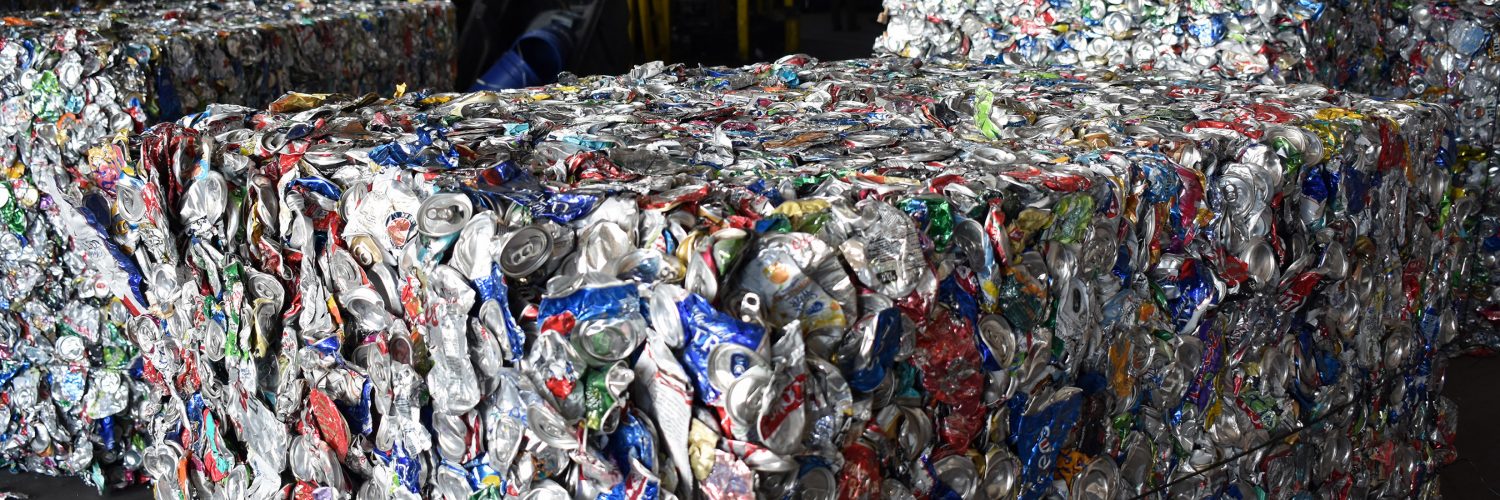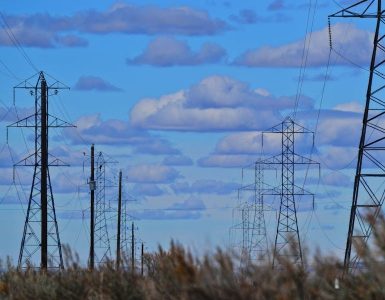Republic Services, the second-largest provider of non-hazardous solid waste collection, transfer, disposal and recycling in the United States, is encouraging Arizona residents and businesses to make a stronger effort to recycle properly.
“A lot of people want to recycle, and they want to do it the correct way; they just don’t know,” said Marek Crabbs, director of municipal services and sales for Republic Services in the southwest U.S. “You need to clean it, you need to empty it, you need to dry it before you put it in.”
Crabbs took CBN on a tour of the company’s recycling facility in Mesa, next to the Salt River Landfill at the Beeline Highway and Gilbert Road. He was quick to point out the noticeable items that do not belong in the pile of recyclables dropped off by trucks outside the facility, noting how quickly employees must judge whether something can be recycled or not as it moves down the conveyor belt inside.
New standards for recyclable material purchases set by China, a major customer for the U.S. recycling industry, have made it more difficult for Republic Services to turn a profit from the recyclable materials it collects, Crabbs said.
“You can see how many people [are needed] to take a product to try to make it into a clean product that we can sell,” Crabbs said. “It’s just changing the overall value. People want to recycle, and we want to make sure that the recycling market is viable for many years to come. It just changes the cost structure.”
The main issue is that residents and businesses in the area do not know the proper methods for recycling or even what can and can’t be recycled, Crabbs said.
“Businesses are really tied down to what they dispose of,” he said. “There’s not many changes to their day-to-day activities and what they get rid of. When you’re at someone’s residence and potentially their trash bin is full, it makes it a lot easier for them to throw it into the recycle bin or to utilize a recycle bin almost as a trash bin.”
The difference between recycling waste produced by residences and businesses was immediately visible at the deposit site. Material from businesses consisted primarily of cardboard boxes and paper with some plastic packaging mixed in, while residential recycling contained a wide assortment of paper, cardboard packaging, cans and bottles, plastic parts, food items and even yard waste.
Materials from all sources were interspersed with plastic bags, which recycling officials say are not recyclable and create frustrating complications in the sorting process. As a result, any bags that enter the facility are often sent to the landfill with other solid waste, regardless of what might be inside.
“What happens is a lot of this stuff doesn’t get clean so it gets compressed in the back of the truck,” Crabbs said, holding up items from the pile including a skateboard, a large plastic tarp and an electric cooking pot. “So just random things that we can’t take into the recycling stream.”
About 30 to 40 percent of the typical material collected from residents is actually trash, and that can contaminate even the items that were recycled correctly, Crabbs said.
“Paper and cardboard with something that’s wet gets ruined,” Crabbs said. “And if you kind of walked through this, you can just see how much stuff comes in here that isn’t right.”
The key to maintaining a productive recycling stream is to educate local residents about what the facilities can accept, and at Republic Services that begin with a website: Recycling Simplified.
“That’s not only for our customers but for everyone,” Crabbs said. “[It] gives people a really easy way [to] understand how they should recycle and what that should look like.”
Most people who recycle the wrong things just want to know their possessions are going to be useful elsewhere, sometimes leading people to recycle things that cannot be remanufactured into new products, Crabbs said. Residents are better off bringing those items to a donation center like Goodwill, he said.
Put simply, cardboard, paper, plastic and cans are the most desirable items for Republic Services. They just must be empty, clean and dry before going in the bin.
“It’s really simple,” Crabbs concluded. “If you don’t know what to throw, don’t throw it away.”















Add comment